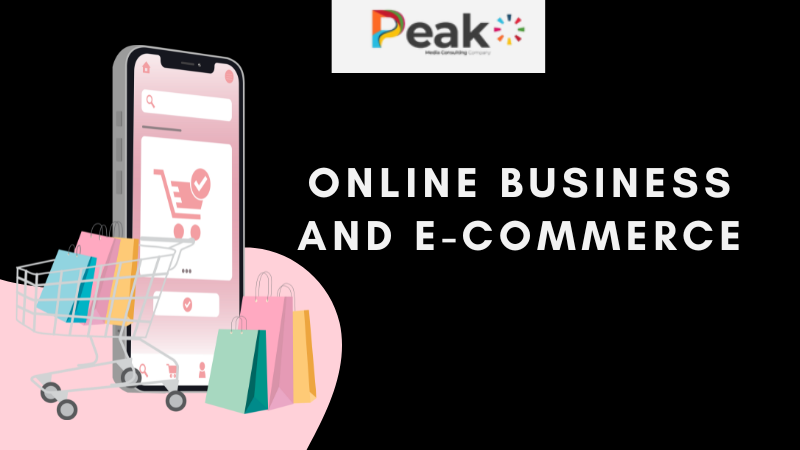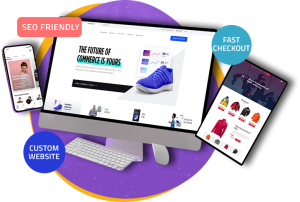Building an online store has never been more accessible, yet creating a truly unique shopping experience requires more than just templates. Custom e-commerce website development gives businesses the competitive edge they need to stand out in today’s crowded digital marketplace.
Why Choose Custom E-commerce Website Development?
Off-the-shelf solutions might work for basic needs, but custom development offers unmatched flexibility. When you invest in a tailored e-commerce platform, you’re building something that perfectly aligns with your brand identity and business processes. Generic templates can’t compete with the personalized user experience that custom solutions deliver.
Many businesses struggle with limitations imposed by standard platforms. Custom development eliminates these constraints, allowing you to implement unique features that directly address your customers’ needs. Whether it’s specialized product configurators, subscription models, or complex inventory systems, custom development makes it possible.
Essential Features for Your Custom E-commerce Site
Every successful online store needs certain core functionalities. Your custom e-commerce website development should include intuitive navigation that guides customers effortlessly through their buying journey. A clean, responsive design ensures your site looks perfect on every device, from smartphones to desktop computers.
Security is non-negotiable in e-commerce. Implementing SSL certificates, secure payment gateways, and robust data protection measures builds customer trust. According to Shopify’s research, security concerns remain a top reason for cart abandonment, making this feature absolutely critical.
Advanced search functionality with filters helps customers find products quickly. Product recommendations powered by user behavior increase average order values. Real-time inventory management prevents overselling and keeps your operations smooth. These features, when properly integrated, create a seamless shopping experience that converts browsers into buyers.
Choosing the Right Technology Stack
Your technology choices significantly impact your site’s performance and scalability. Popular frameworks like React, Vue.js, or Angular provide excellent front-end experiences. For the backend, options include Node.js, Python with Django, or PHP with Laravel. Each has its strengths depending on your specific requirements.
Database selection matters too. PostgreSQL and MongoDB serve different needs, with relational databases excelling at structured data while NoSQL solutions offer flexibility for rapidly changing requirements. The right choice depends on your product catalog complexity and expected growth trajectory.
Content management capabilities shouldn’t be overlooked. While building custom, you’ll want administrative tools that non-technical team members can use confidently. Headless CMS solutions like Contentful or Strapi integrate beautifully with custom e-commerce platforms, giving you the best of both worlds.
Payment Integration and Checkout Optimization
Smooth payment processing is the heart of any e-commerce operation. Modern custom e-commerce website development should support multiple payment methods, including credit cards, digital wallets like Apple Pay and Google Pay, and emerging options like cryptocurrency. Payment gateway integration with providers such as Stripe or PayPal ensures secure transactions.
Checkout optimization directly impacts your bottom line. Implementing a one-page checkout reduces friction and abandoned carts. Guest checkout options lower barriers for first-time buyers. Auto-fill functionality speeds up the process, while progress indicators keep customers informed about remaining steps.
Consider implementing save-for-later features and wish lists. These tools help customers organize their shopping and increase the likelihood of return visits. Sending abandoned cart emails with personalized reminders recovers potentially lost sales effectively.
Mobile-First Design Principles
Mobile commerce dominates online shopping today. Your custom e-commerce website development must prioritize mobile experiences from the ground up. This means touch-friendly buttons, simplified navigation, and fast loading times on cellular networks.
Progressive Web Apps (PWAs) offer app-like experiences without requiring downloads. They work offline, send push notifications, and install on home screens. For many businesses, PWAs provide the perfect middle ground between responsive websites and native mobile applications.
Performance optimization is crucial for mobile users. Image compression, lazy loading, and minimizing JavaScript ensure quick page loads even on slower connections. Every second of loading time impacts conversion rates, with studies showing significant drop-offs after just three seconds.
SEO and Marketing Integration
Building a beautiful store means nothing if customers can’t find it. Custom e-commerce website development should include SEO best practices from day one. This includes clean URL structures, proper heading hierarchies, schema markup for products, and optimized meta descriptions for every page.
Integration with marketing tools amplifies your reach. Email marketing platforms like Mailchimp or Klaviyo should connect seamlessly with your customer database. Social media integration allows easy sharing and social proof display. Analytics tools like Google Analytics 4 provide insights into customer behavior and campaign performance.
Content marketing capabilities enhance organic discovery. Including a blog section, like what Peak Media Consulting offers through their comprehensive website development services, helps attract potential customers through valuable content. Internal linking between product pages and relevant blog posts improves SEO while guiding customer journeys.
Working with Development Partners
Choosing the right development partner makes or breaks your project. Look for teams with proven e-commerce experience and portfolios showcasing diverse projects. Communication style matters as much as technical expertise since you’ll work closely throughout development.
Professional agencies like Peak Media understand that custom e-commerce website development requires balancing business goals with user needs. They bring strategic thinking beyond just coding, helping you make decisions that support long-term growth.
Ask potential partners about their post-launch support. Websites require ongoing maintenance, security updates, and feature enhancements. Establishing a clear maintenance agreement prevents future headaches and ensures your investment continues delivering value.
Budget and Timeline Considerations
Custom development represents a significant investment, typically ranging from $15,000 to $150,000+ depending on complexity. While this exceeds template costs, the long-term ROI through increased conversions and operational efficiency justifies the expense for serious businesses.
Timeline expectations should be realistic. Basic custom e-commerce sites might launch in 3-4 months, while complex platforms with advanced features could take 6-12 months. Rushing development leads to bugs and poor user experiences, so planning adequate time ensures quality results.
Phase your development if budget constraints exist. Launch with core features, then add advanced functionality as revenue grows. This approach manages costs while still providing the custom foundation your business needs.
Future-Proofing Your E-commerce Platform
Technology evolves rapidly, so building with scalability in mind prevents costly rebuilds. Modular architecture allows adding new features without restructuring everything. API-first design enables integration with emerging tools and services as they become available.
Artificial intelligence and machine learning will increasingly impact e-commerce. Planning for features like personalized product recommendations, chatbots, and dynamic pricing positions your store at the industry forefront. Voice commerce and augmented reality shopping experiences represent the next frontier.
Regular updates keep your platform secure and performant. Schedule quarterly reviews of site performance, security patches, and user feedback. Staying proactive with maintenance prevents technical debt from accumulating and compromising your site’s effectiveness.
Taking the Next Step
Building a custom e-commerce website in 2025 offers unprecedented opportunities to create shopping experiences that truly resonate with your target audience. While the journey requires investment and careful planning, the results speak for themselves through increased sales, customer loyalty, and brand differentiation.
Whether you’re launching a new venture or upgrading an existing store, custom e-commerce website development provides the foundation for sustainable online success. The key lies in partnering with experienced professionals who understand both technical requirements and business strategy.
Ready to start your custom e-commerce journey? Contact Peak Media Consulting to discuss how custom development can transform your online business and deliver the unique shopping experience your customers deserve.


